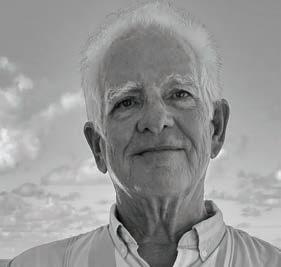3 minute read
Designing A Sustainable Philanthropic Ecosystem
Next Article
At only 166 square-miles, Barbados is smaller than many cities and is highly vulnerable to external shocks. The island’s high cost of living, rising unemployment numbers and myriad of challenges resulting from climate change, Covid-19 and historical disenfranchisement call for urgent solutions to growing systemic challenges affecting Barbadians. This need for critical intervention is self-evident at a time when public funding for many social needs is severely strained, unavailable or even being reduced.
The Barbados Third Sector addresses needs and develops solutions in areas like Climate Sustainability; Food security; Environment and Animals; Public and Societal Benefit; Poverty Alleviation and Economic Empowerment; Health; Human Services; Youth and Family Empowerment; Women and Girls; Arts, Heritage, Culture and Humanities; Education and Research.
Different from the Public and Private Sectors, Barbados’ Third Sector (social / civil / nonprofit sector) is large, mostly unpaid and financially vulnerable.
Peter Boos Founder and Advisory Board Chairman ASPIRE Foundation

Nevertheless, Barbados has
• An active civil society of over 1000 registered organisations;
• A culture of informal, activity-based giving by local companies with growing private sector awareness of corporate social responsibility;
• Many philanthropists with strong Barbados connections, who have made material and impactful donations in the last decade
• Emerging civil society policy and governance standards and emerging investor awareness of Environmental, Social and Governance (ESG) impact.
Creating an enabling environment (ecosystem) to support the development of Barbados’ Third Sector is essential to maximising the potentially huge influence this Sector can have on our communities and society at large. In doing so, we can generate new innovative investments, attract foreign exchange, develop more skills, and create good jobs, whilst improving the quality of life for many, especially those at the lower end of the wealth table.
Tested and evolved over years, the Substance Abuse Foundation Inc.’s (SAF - Registered Charity #206) approach acts as a pilot and, along with other related initiatives, informs the evolution of a proposed philanthropic ecosystem.
Debbie Estwick Design Strategist
The SAF relies on an integrated approach to sustainability that utilizes the ‘Triple Bottom Line’1 and shifts the organization to a more financially sustainable and resilient path. Their approach, combines philanthropy, renewable energy revenue, Government support and other commercial revenue to help the charity achieve sustainability.

Despite being fortunate to have had the support of many generous philanthropists with strong Barbados connections, as shown in the SAF model, philanthropy alone is not enough to help every valuable charity achieve the sustainability it needs to thrive and make a long-term difference. Donor-led capacity building efforts of development agencies and foundations are much needed and have helped, but are often limited by their project-based mandate. What is required is more consistent, developmental, systems-change resource support (Ashoka, McKinsey & Company, et al, 2020).
The realization of a philanthropic ecosystem framework for Barbados requires public, private and third sector partnership and can harness capabilities and resources that ensure long-term sustainability and viability while contributing to realizing the national vision of a fossil free Barbados by 2030. With strategic purpose, inclusion at a policy level and intentional effort, the design and implementation of an effective and sustainable Barbados philanthropic eco-system is within reach.
This can be done through the establishment of a Barbados Third Sector Renewable Energy Investment and Development Fund or “Social Solar Fund”, along with conditions, incentives and policy measures that support the fund and sector. Such a fund, as proven by the SAF, can generate long-term stable and predictable revenue streams that could be used solely to fund Barbados’ Third Sector Organisations and Enterprises, and by extension, address urgent social needs while contributing to the achievement of National Energy Policy goals – namely “Environment”, “Entrepreneurship” and “Economic Enfranchisement”.
The current social and economic landscape suggests that this is a unique and timely opportunity for the establishment of such a fund and the strategic development of a philanthropic ecosystem framework for Barbados (see Figure 5).
Recent anecdotal evidence suggests that philanthropists and International Development Agencies would find such a fund attractive and facilitative of their desire to support Barbados’ social development. What they need most is a credible ecosystem and professionally managed financial vehicle, such as the proposed “Social Solar Fund”, with the right level of Government policy backing. With a coordinated approach that supports existing policy goals, we can design and develop a Barbadian philanthropic ecosystem and interventions that catalyse a more sustainable, adaptive, equitable and caring society while bettering our world with creative, empathetic, sustainable and cost effective frameworks and approaches that are good for our triple bottom line – our people, planet and profit.

